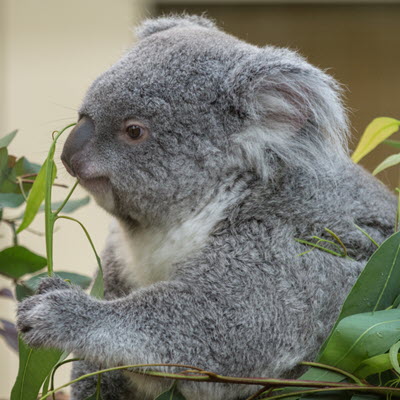Make a difference with maths and conservation
You can totally change the world with numbers. Just ask Associate Professor Eve McDonald-Madden who works in maths and conservation. She combined a passion for wildlife with her maths skills and now figures out sustainable solutions to complex environmental problems.
Maths and conservation
Associate Professor Eve McDonald-Madden has always loved nature and animals, and before maths and conservation was on her radar, she wanted to be a vet.
‘I realised that most vets treat domestic animals and not wildlife, so I decided that the best thing for me to study would be ecology and environmental science,’ she explains.
After completing her undergraduate degree at the University of Melbourne, Eve went to work for the Victorian Government in their environment department. ‘Here I discovered the importance of numbers to help us make decisions to manage the environment,’ she says.
This led her to study a graduate diploma in mathematics and then a PhD on optimisation techniques for conservation management.

Here I discovered the importance of numbers to help us make decisions to manage the environment.



Maths + conservation = problems, solved
Eve is now an ARC Research Fellow in the School of Geography, Planning and Environmental Management at the University of Queensland and a Chief Investigator on the ARC Centre of Excellence for Environmental Decisions, NESP Threatened Species Hub. She is also a founding member of the UQ Centre for Biodiversity and Conservation Science.
Her work applies mathematical theories from decision analysis, such as optimisation methods and systems modelling to inform decisions in complex environmental systems.
‘In particular, I am focused on sustainable solutions to these complex problems, such as:
- how can we produce beef for global consumption whilst minimising economic and environmental impacts
- the trade-offs between development of a global seaweed industry and the marine impacts and benefits
- the potential for land-use and greenhouse gas emissions reduction.
I use maths to investigate these questions.’
Eve believes it’s super important for secondary school students to stick with maths because it can be used to make a difference, particularly in solving global problems.
‘For many secondary school students, maths is seen as the heart of the study of engineering or maybe physics,’ she says.
‘The examples we are given often focus on speed of travel or the geometry of structures. But maths can be used for so much more – helping diagnose medical conditions, setting fisheries harvest limits, sustainable beef production and saving the environment.'
If more students stick with studying maths in secondary school with these aims in sight, the world will be a better place.